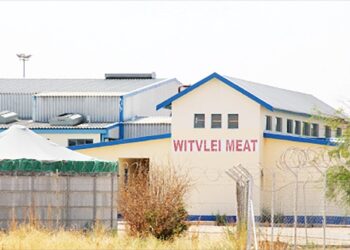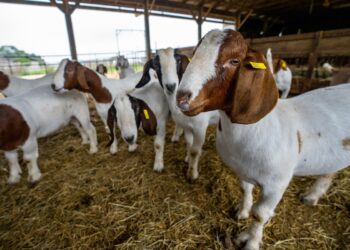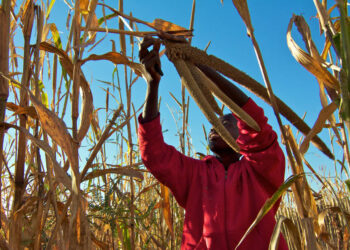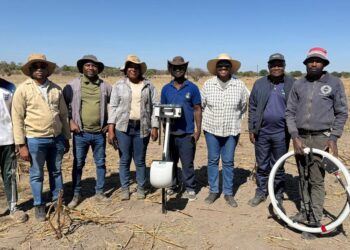
The Zambezi Region still lags behind in food sustainability despite boasting good fertile soil and average rains, the Minister of Agriculture, Water and Land Reform Calle Schlettwein has said.
Schlettwein said he sees potential in the Zambezi Region as he described the areas as under-developed in the agricultural sector.
“The Zambezi Region is badly under-developed for agricultural purposes at the moment no irrigation is taking place. This is our biggest source and we must revitalise existing and develop more irrigation projects so that they can be run sustainably and feed us,” Schlettwein said.
He said it is the same situation in the Kavango regions as well despite having 11 green schemes.
“These are big projects that can sustain us, which is why there should be no stoppages of water supply. Because if we have any gaps these crops will die,” stated the minister, as he highlighted the importance and benefits Namibia can derive from shared water resources.
He however noted that tapping water from shared rivers with other countries poses challenges as none wants to give more, instead opting to offer a minimum, which often is not sufficient.
“In this regard, we are looking forward to the Zambezi WaterCourse Commission (ZAMCO), which we believe will be crucial in developing the agricultural sector in Zambezi as there is abundance of water from Zambezi River we hold a substantial share,” he said.
“There are some challenges when accessing such resources, for instance, we have some rough encounters with South Africa over the Orange River. They are not our own and share these resources with neighbours and need to formalise.
We have some rough edges because we can’t agree with South Africa on Orange River, same with Angola over Kunene River because these are upstream and we are tail-enders, because we fail whatever that happens up affects us at the end. With Kavango at least we are bordering in the middle,” he stated as he concedes that these are shared resources thus needing mutual agreements.
Schlettwein, shared this with the NamWater board, emphasising that transboundary water resources are their responsibility as it remains a source of their supply.
He said the board has the mandate to know how best to achieve much improved equity and management and utilisation of shared water resources.Â
He added that with internal dams and underground water sources, NamWater is free to use, design and extract.
Â
Â
Â
Â
Â
Â
Â











